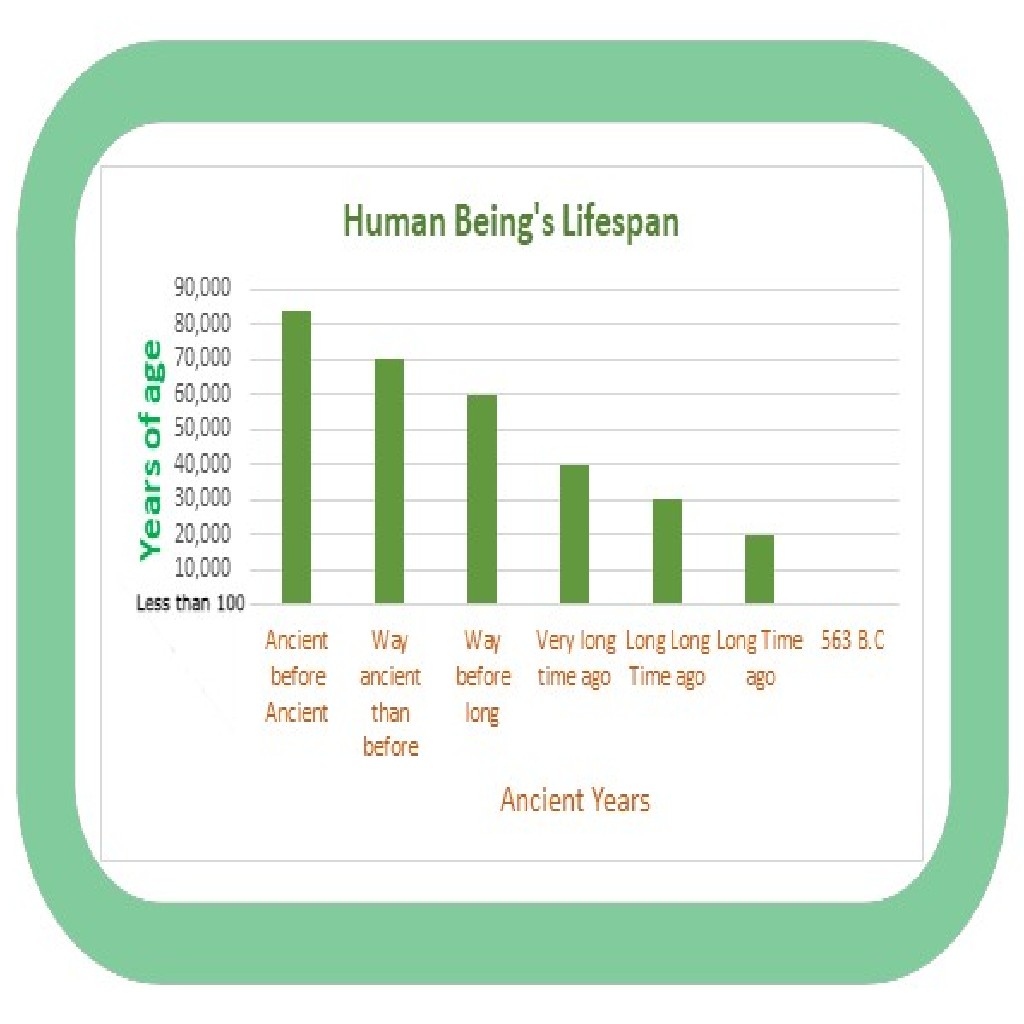
Human being’s lifespan
Huangdi Neijing, (黄帝内经 in Chinese, “the Inner Canon of the Yellow Emperor” in English), was written at 1523 to 1028 years before century. In the past over two thousand years, Huangdi Neijing is regarded as the fundamental doctrinal source for Chinese medicine. In its very first chapter, the principle Chinese medical book described four types of human beings. These four types of human beings lived in the period way before the book period. Huangdi Neijing named these human beings as “True human in upper ancient times” (上古真人), “Reach human in middle ancient times” (中古至人), “Sages” (圣人) and “Magi” (贤人). All these four types of humans lived in plain life style. They are harmonized to nature. They don’t require medication and can live at a minimum of 100 years of age. “Su Wen-Shanggu Tianzhen. The universal truth” (素问- 上古天真论”)

Coincidentally, 2500 years ago, Buddha told his dispels that human beings’ age were reduced from 80,000 years all the way to 100 years, according to “Buddha Says the Long Agama Sutra First Volume”.
Huangdi Neijing implied that medical should be the very last resource. People would be in a much better health status if something did not happen. Buddhist sutra listed the longevity reduction history in details. Some mistakes were made in human history long long time ago. These mistakes continued as tradition that harm people’s health and shorten human’s life.

Apparently, vegan is the starting point of better health.
Not sticking to vegan diet is one of the mistakes people overlooked in the history.
Hence, scientific researches need to catch up.
